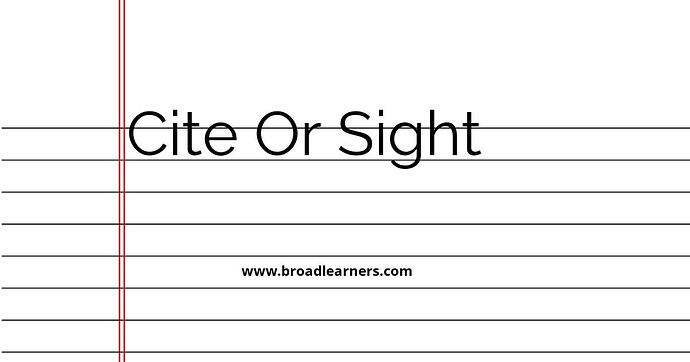'Cite' and 'sight' are commonly confused words in English grammar. Understanding the difference between 'cite' and 'sight' is important to use them correctly in written and spoken English.
'Cite' is a verb that means to quote or refer to a source of information or evidence. It is used to give credit to the original author or to support an argument with evidence.
'Sight' can be used as a noun or a verb. As a noun, it refers to the ability to see or the act of seeing. As a verb, it means to see or to catch a glimpse of something.
Let's take a closer look at the meanings and usage of 'cite' and 'sight'.
| 'Cite' | 'Sight' |
|---|---|
| The word 'cite' is a verb that means to quote or refer to a source of information or evidence. | The word 'sight' can be used as a noun or a verb. |
|
|
To remember the difference between 'cite' and 'sight', it can be helpful to remember that 'cite' is used when referring to a source of information or evidence, while 'sight' is related to the ability to see or the act of seeing.
Here are some examples of correct usage:
- She cited several scientific articles in her research paper. (referring to the act of quoting or referring to sources)
- He lost his sight in a fireworks accident. (referring to the ability to see)
- We sighted a pod of dolphins during our boat trip. (referring to the act of seeing or catching a glimpse of something)
Remembering the correct usage of 'cite' and 'sight' will improve your grammar and communication skills.
